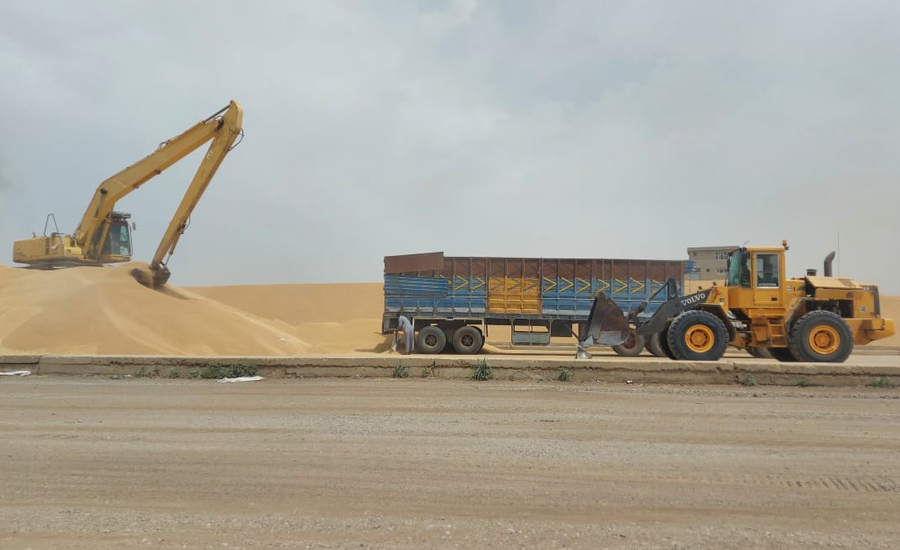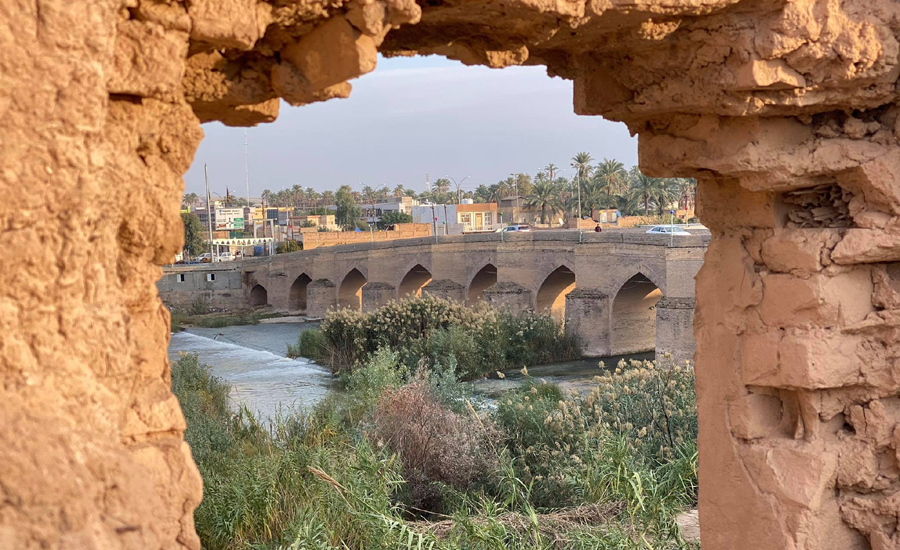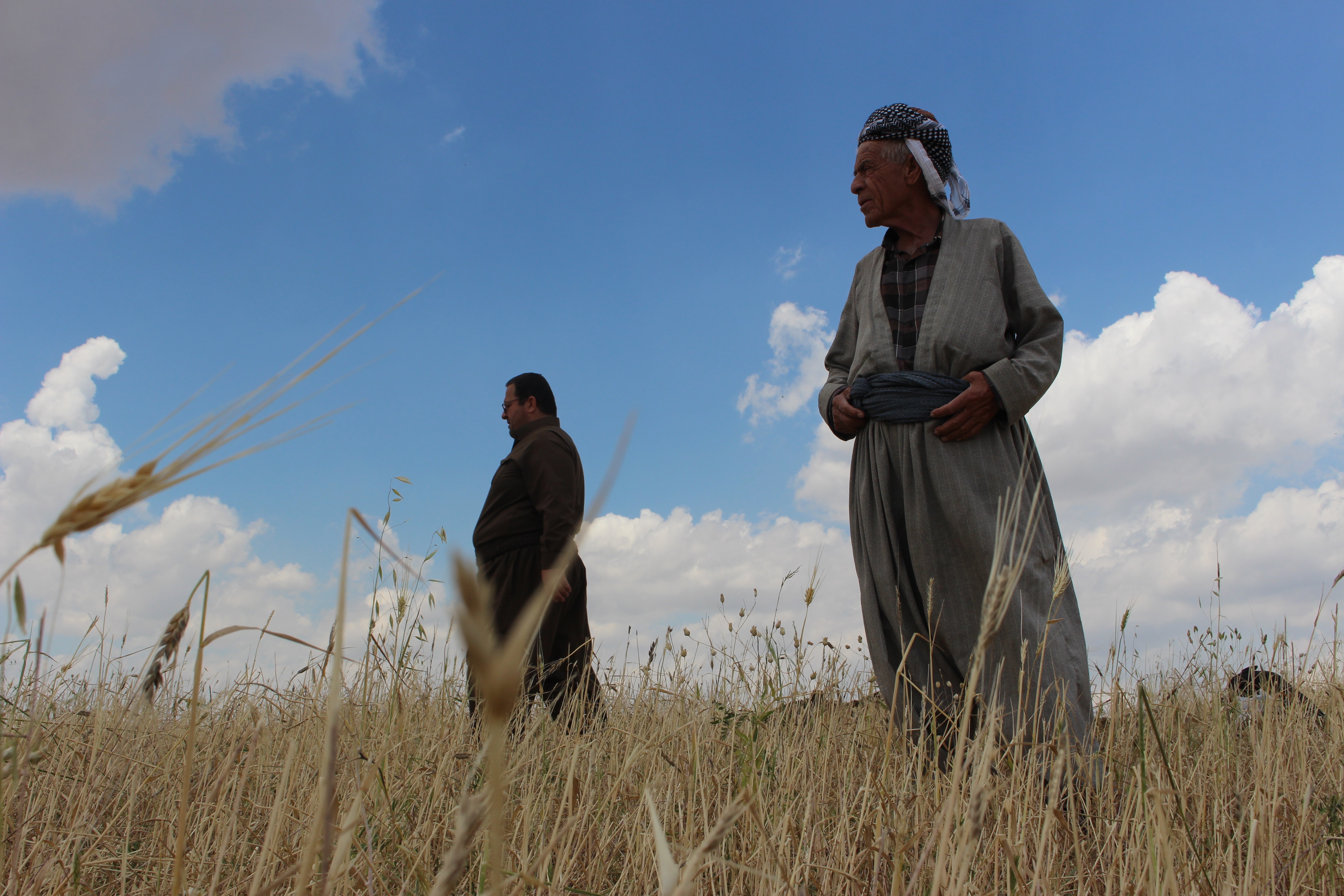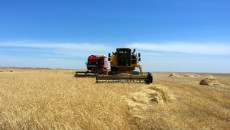Some farmers from Khanaqin are forced to smuggle fertilizer and pay large sums to obtain it, at a time when they have suffered losses estimated at millions of Iraqi Dinars Dinars IQD due to drought, and grain production has declined in their areas over the past two years.
The Iraqi Ministry of Agriculture, in a letter issued on November 20, 2022 and addressed to the Ministry of Interior, stopped the process of purchasing and transporting all types of chemical fertilizers from the Kurdistan Region to the governorates of Iraq, and also prevented their circulation in the markets.
Ali Khanaqini, a farmer in Khanaqin - a disputed area between the federal government and the Kurdistan Regional Government KRG and its security file is in the hands of the Iraqi Security Forces ISF - bought 35 tons of chemical fertilizers from the adjacent Kalar district – of Sulaymaniyah Province under the KRG - but the Iraqi government's checkpoints did not allow them to pass.
"We bought fertilizer with six other farmers. We wanted to transport it to Khanaqin, but they told us that this is prohibited by the decision of the Ministry of Agriculture," Ali says.
We bought fertilizer with six other farmers. We wanted to transport it to Khanaqin, but they told us that this is prohibited
Ali and other farmers waited for more than a month, until they finally had to smuggle fertilizer to Khanaqin after paying 500,000 IQD (1 USD= 1,570 IQD) for each ton.
"Money makes everything easier for you here," he added, without giving further details.
According to the instructions of the Iraqi Ministry of Agriculture with the exception of urea and other prohibited fertilizers, all types of chemical fertilizers can be imported into Iraq, provided that the importer has an import license, but the process of transferring it from the ports to the warehouses is under the supervision of the National Security Agency and the Joint Operations Command.
The instructions stipulate that the transfer of fertilizers to agricultural fields is under the supervision of the National Security Agency, and it is forbidden to transfer all types of fertilizers from the Kurdistan Region to the Iraqi governorates.
Assigning these tasks to the National Security Agency is related to the security file, because some chemicals used in agriculture can also be used to make explosives and are considered hazardous materials.

The Iraqi Council of Ministers made changes in some conditions and instructions during a meeting held on February 28, including allowing the import of fertilizer (urea and dab) from the Iraqi Kurdistan Region IKR to Nineveh through the Mosul Dam checkpoint and to Kirkuk from the Darman checkpoint according to the instructions, without specifying an entry port for those fertilizers to Diyala province.
This decision comes at a time when farmers spent large sums of money during the past two months to smuggle fertilizers from the IKR.
According to the information obtained by (KirkukNow), those who suffer most from the problem of obtaining chemical fertilizers are farmers whose agricultural contracts have not been renewed due to disputes over their ownership, as the Ministry of Agriculture refuses to provide them with chemical fertilizers, and this problem is widely unified in disputed areas.
"This is why we resort to illegally importing fertilizers and pay large sums of money for this purpose," Ali Khanaqini said.
Local authorities would like to cooperate but they have to work per instructions from Baghdad.
Ibrahim Khalil, director of the Khanaqin Agriculture Department - affiliated to Diyala Governorate - said, "The decision of the Ministry of Agriculture stipulates that no farmer in Khanaqin should be allowed to import any kind of fertilizer from the Kurdistan Region.”
This is why we resort to illegally importing fertilizers and pay large sums of money for this purpose
“We provide farmers with fertilizers and other requirements according to the area of the agricultural land, provided that the ministry renewed their agricultural contracts,” Khalil added.
Over two thousand farmers registered with the Diyala Agriculture Department, and they are provided with white fertilizer at an amount of 300,000 IQD per ton, and 900,000 IQD for black manure.
In the event that the farmer resorts to buying fertilizer from the black market, one ton will cost an amount of 1,150,000 IQD.
In general, there are two types of agricultural land, the first is the land whose contracts were renewed after 2003, and the second is the land whose contracts date back to the 1970s and according to the instructions, their owners are not supplied with fertilizers.
In Khanaqin district, 1,000 farmers are registered with the Khanaqin Agriculture Office, of which 400 farmers plant wheat and barley annually and 13,000 acres of land were planted with wheat last year, almost half of 2021.
Abdullah Muhammad, a farmer in Khanaqin, says that while the Ministry of Agriculture banned bringing chemical fertilizers from the IKR, it can be smuggled into Khanaqin after paying large sums to "turn a blind eye."
Farmers whose contracts have not been renewed since the 1970s are not provided by the Ministry of Agriculture with fertilizers and other agricultural supplies.

This problem comes to increase the suffering of farmers, who have incurred huge losses over the past two years due to lack of rain and the repercussions of climate change.
Muhammad says that he incurred losses estimated at eight million IQD in 2021.
Abdullah is one of the farmers whose agricultural contracts have not been renewed, and he says that the concern for obtaining chemical fertilizers has increased his fears of another dry season.
The number of farmers registered with the Khanaqin Agriculture Department - affiliated to the KRG - is 2,400, and according to the director of the department, Kamran Abdullah, all of them either made no profits or suffered losses in 2021 and 2022.
"In the past two years, the production of grain from the rainfed lands was zero, but 300 farmers in Khanaqin were irrigating their crops themselves. Their production was not of the required volume because of dust storms and agricultural pests."
In the past two years, the production of grain from the rainfed lands was zero
The Khanaqin Agriculture Department - affiliated to the regional government - recorded the extent of the damage to farmers, but there is no good news regarding their compensation.
The area of the irrigated lands in Khanaqin is estimated at 9,200 hectares compared to 32.5 hectares of rainfed.
"Besides the problem of drought, we face a bigger problem that we are not allowed to bring in fertilizers. We are ready to plant but what can we do if they don't help us?" says Akram Hatem, another farmer in Khanaqin.
"In 2019 and 2020, I suffered huge losses," said Akram, who has incurred losses from grain cultivation for four consecutive years.
In 2021, he Hatem planted 12 tons of wheat on demolished land in the hope of rain, without having a production, and he says that the greatest damage was inflicted on him in 2022, when he planted 50 tons of wheat.
“I swear by God; I am 40 million dinars in debt.” Addressing the government, Akram said, “All I know is agriculture. The government must think of a plan to help farmers. The waters of the Sirwan and Alwand rivers have been cut off. If it does not rain, agriculture will end. We will not bear more losses.”






